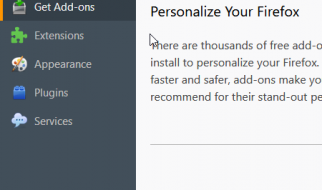
Information is not the same thing as understanding.
What is the quality of your thinking?
How deep a thinker are you?
Thinking is the core of our being.
Deeper thinking leads to deeper living.
Superficial, shallow thinking produces a superficial life.
We are generally not taught how to think. It is a skill we are expected to know, without specific instruction.
Are you skilled at analyzing problems?
Here is a challenge for your mind for the rest of the year: commit to dig deeper into subjects of thought or knowledge you deeply care about.
In his book, Thinking Fast and Slow, Daniel Kahneman says, we use two primary modes of thinking to process information and make decisions.
Mode 1 is intuitive, instant, unconscious, automatic, and emotional.Mode 2 is slow, rational, conscious, reflective, reasoning, and deliberate.
At any point in time, your active thoughts and actions varies depending on what mode is running.
Slow, deliberate, focused and logical thinking is often applied to complex problems.
Deliberate thought is more reliable but we rarely stop, reflect, and make slow decisions, because in many situations our responses are automatic hence the need to hone your thinking skills.
Shallow thinkers rarely think beyond the obvious. They take information on the face value. A shallow thinker just looks at first-order consequences.
A deep thinker, on the other hand, looks at the whole chain of effects, impacts, and outcomes.
Shallow thinkers are incapable, and sometimes too lazy, to look at all sides of an issue or to explore the issues deeply before making judgment or decision.
Shallow thinkers usually strongly believe they are right.
They also believe they have depth behind their opinion, because they believe their opinion is also based on the truth and indisputable facts.
When you dig deeper, you understand better.
You compare different outcomes. You analyse, dissect and make informed judgement based on different mental models.
Read a book once and you will probably have a shallow understanding.
Read a book multiple times, take notes, summarize concepts, and guess what, you understand the ideas deeply.
A shallow thinker solves one problem with one known solution.
A deep thinker approaches multiple problems from different angles.
Think beyond the first level
In The Most Important Thing Illuminated, Howard Marks explains: First-level thinking is simplistic and superficial, and just about everyone can do it (a bad sign for anything involving an attempt at superiority). All the first-level thinker needs is an opinion about the future, as in ?The outlook for the company is favorable, meaning the stock will go up.? Second-level thinking is deep, complex and convoluted.
Many people refuse to engage their minds.
They take in facts, statistics and information, but never question the reasoning behind them or make the effort analyse what they have seen, read or been taught.
They obsessively seek out truth that confirms their wordviews and cling to it with little room for metacognition (thinking about their thinking).
The biggest barrier to deeper understanding is confirmation bias (seeking opinions, knowledge, and views that confirms your existing worldview).
Cognitive psychologist, Albert Bandura, argues ?People are highly driven to do things that build self-worth; you can?t transgress and think of yourself as bad. So people transform harmful practices into worthy ones, coming up with social justification, distancing themselves with euphemisms and numbers, ignoring the long-term consequences of their actions.?
Contradictory information creates imbalance in the human body. Information that supports our current belief is conversely rewarded via dopamine release.
Aristotle once said,?It is the mark of an educated mind to be able to entertain a thought without accepting it.?
If you consistently look for opinions that support your views, you may feel better about yourself in the short-term, but your actions will have long-term negative effects that could impact a lof of people close to you.
Shallow thinkers cling desperately to their own way of thinking.
They refuse to better themselves, or consider other thinking models, opinions, arguements, principles, frameworks, and patterns that question their perceptions about life and living it.
They heavily rely on their limited heuristics (mental shortcuts that ease the cognitive load of making a decision) with little or no room to improve their decision making processes.
Heuristics help us make snap judgments. But sometimes, what you save in time, you lose in accuracy. And if your heuristics are flawed, your snap judgments will cost you.
In psychology, heuristics are efficient rules, learned or hard-coded by evolutionary processes, that have been proposed to explain how people make decisions, come to judgments, and solve problems typically when facing complex problems or incomplete information.
While heuristics can speed up our problem and decision-making process, they can introduce errors. Which is why is pays to dig deeper in every decision making process.
Relying on limited existing heuristics (cognitive biases) can make it difficult to see alternative solutions or come up with new ideas.
In her book, Willful Blindness: Why We Ignore the Obvious at Our Peril, Margaret Heffernan, examines the cognitive mechanisms by which we choose, sometimes consciously but mostly not, to remain unseeing in situations where ?we could know, and should know, but don?t know because it makes us feel better not to know.?
Heffernan argues that the biggest threats and dangers we face are the ones we don?t see ? not because they?re secret or invisible, but because we?re willfully blind.
Deep thinking in the age of distraction
Here?s the problem: in our rapidly changing, high-pressured, distracting world, our working memory gets taxed.
Your brain?s capacity is constantly overburdened and thus diminished in function over time.
Deep thinking requires effort and patience.
On one hand, effort is necessary to learn the fine art of thinking deeply.
Effort is required to maintain one?s focus on one particular train of thought.
In just 5 minutes a day, you can focus on improving how you think.
It?s a life-long process that can enrich your knowledge every day. And the good news is that you access free online resources anywhere to help you grow.
Charlie Munger said, ?I constantly see people rise in life who are not the smartest, sometimes not even the most diligent, but they are learning machines. They go to bed every night a little wiser than they were when they got up and boy does that help, particularly when you have a long run ahead of you?
Use the Feynman Technique to make sure you understand things. This is perhaps the single most effective studying tool that you can use to focus.
Learning is best when you connect it to things that you?ve already learned.The more you know the more you can connect.
Don?t stop looking for answers. If something doesn?t make sense to you, look for ways to expand your knowledge so that you do understand it.
If you want to be a deep thinker, you have to get in the habit of asking deep questions. Ask them about everything.
To be a more insightful thinker, ask why repeatedly!
Force yourself to use your brain more.
The more regularly you pick up a new skill, study a new subject, or dig deeper into any topic, the stronger your mind becomes. Try to pick up one new thing every week, then continue working on it as you learn new things.
Focus, strategy, logic and creativity are just a few of the mental muscles you should be exercising more regularly.
The more you exercise and challenge your mind, the deeper your understanding can be.
Your career, and personal life will never be the same if you can commit to understanding topics, issues, and subjects deeper.
Dig deeper
Join my Thinking in Models community and upgrade your thinking habits. Join smart and curious people on a mission to think clearly, work better, solve problems at multiple levels of depths, and make complex decisions with confidence! Click here for details.
You can also subscribe to Postanly Weekly(my free weekly digest of the best posts about behaviour change that affect health, wealth, and productivity). Join over 46,000 people on a mission to build a better life.


